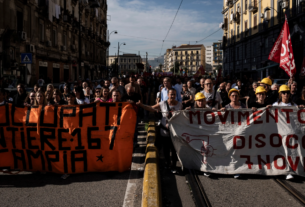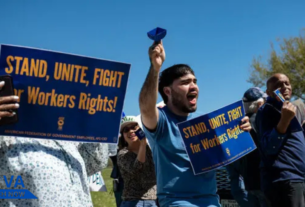At a recent United Nations human rights hearing, Indigenous leaders from Peru raised urgent concerns about the impact of ongoing oil and gas projects in their communities. They argued that these projects violate their rights to land, health, and self-determination, as well as endanger the environment they rely on for survival.
“These projects are destroying our way of life,” said one of the Indigenous leaders, speaking on behalf of several affected communities. She described how oil and gas drilling operations in the Amazon rainforest have polluted local water sources, making it impossible for people to access clean drinking water.
Reports from the affected regions reveal that many Indigenous people are suffering from waterborne diseases as a result of the contamination. “We can no longer trust the rivers that have been the source of our life for generations,” the leader continued, urging the international community to recognize the growing humanitarian crisis in Peru’s Amazon region.
“We are being ignored, and our rights are being trampled upon,” another leader said, highlighting that many of the agreements made between the Peruvian government and corporations lacked the consent of local communities.
The Peruvian government has defended its oil and gas industry, arguing that the projects are necessary for economic development. However, the leaders pointed out that such projects disproportionately affect Indigenous populations, who often live in remote and ecologically sensitive areas. “Economic growth cannot come at the cost of our people’s lives and future,” they insisted.
Indigenous leaders also raised the issue of the environmental degradation caused by these projects. “The forests are being destroyed, the animals are fleeing, and the rivers are dying,” one leader explained. They called for a halt to the expansion of oil and gas extraction in the Amazon, which is vital to the biodiversity of the region and global climate stability.
According to the Indigenous groups, the damage to the environment is not limited to deforestation. “Toxins and chemicals from oil extraction seep into the land and water, affecting all living things,” they said. They emphasized that the long-term ecological consequences of oil and gas drilling have yet to be fully understood and could take generations to repair.
The leaders also urged the United Nations and international human rights organizations to take action against the Peruvian government and the corporations involved. “We need your help to stop this destruction,” one leader stated, appealing for stronger enforcement of international laws protecting Indigenous rights and the environment.
You should be aware that the oil and gas projects in question are part of Peru’s push to expand its energy sector. While the government has touted these efforts as vital for national development, critics argue that the long-term costs—particularly for the Indigenous populations—are too high.
As the hearing continued, it became clear that the issue was one of deep concern for the international community. Many representatives from various countries expressed support for the Indigenous leaders and called for increased attention to their plight. “We must protect these communities and their land,” one representative said, echoing the leaders’ call for action.
The United Nations human rights hearing marked a significant moment in the global fight for Indigenous rights. It brought international attention to the situation in Peru, where economic development is clashing with environmental and human rights considerations. The hope is that these conversations will lead to more concrete actions to protect Indigenous populations from exploitation.
As the hearing came to a close, the Indigenous leaders vowed to continue their struggle. “We will not give up on our land, our people, and our future,” they said. The battle to protect the Amazon and its Indigenous inhabitants is far from over, and their voices will remain a powerful force in advocating for justice.




